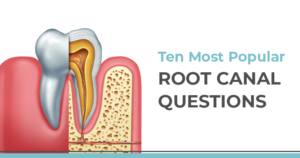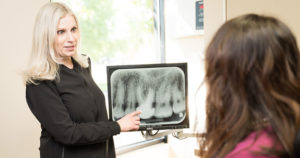The Dangers of Dental Carries
While no parent would willingly jeopardize their child’s health, millions of parents do that inadvertently each day by not taking proper care of their child’s oral health. When infants and young children develop tooth decay, it’s often referred to as baby bottle tooth decay, or dental carries. Baby bottle tooth decay is a result of parents allowing sweetened liquids or those that contain natural sugar, such as formula, milk, and fruit juice, to bath their child’s teeth for extended periods of time. Bacteria that lives in the mouth known as plaque thrive on sugar and begin to create acids that damage the health of teeth.
Who’s at Risk?
Young children with the greatest risk of developing baby bottle tooth decay are those who get laid down for naps and bedtime with a bottle, and those who are often given pacifiers dipped in honey or sugar. The problem with both of these practices is that they allow sugar to cling to your child’s teeth for long periods of time, which provides plaque with plenty of fuel in which to produce acid that eats away at your child’s tooth enamel. This is especially harmful when your child is sleeping, as the flow of saliva significantly decreases during sleep. Saliva works as the body natural defense against harmful plaque acids, and can help neutralize the damage caused to tooth enamel.
Why it’s a Problem
While baby bottle tooth decay generally affects a child’s upper front teeth, all of your child’s teeth could be at risk of suffering damage from tooth decay. It’s not uncommon for parents to think that temporary baby teeth aren’t as important as a child’s adult teeth. However, baby teeth play an important role in not only helping your child eat, speak, and smile, they also act as placeholders for adult teeth. When left untreated, tooth decay can cause sever infection, pain, and potentially the need to remove teeth that have become badly damaged.
Children that lose baby teeth at too early an age may develop crooked teeth, poorly formed adult teeth, speech problems, or poor eating habits. Without baby teeth to hold a place in the mouth for adult teeth to form, the chances of your child suffering from tooth crowding and crooked teeth greatly increases, which could result in them needing braces or having adult teeth pulled in order to make room.
Preventing Baby Bottle Tooth Decay
Fortunately for parents, preventing baby bottle tooth decay only requires they implement quality oral health habits at an early age. These habits include:
- Using a clean washcloth or gauze pad to gently wipe your child’s gums following each feeding.
- Starting brushing your child’s teeth immediately following the formation of their first tooth. Don’t use toothpaste until your child old enough not to swallow during brushing.
- Gently massage and clean the areas of your child’s mouth without teeth.
- Begin flossing your child’s teeth once they have all formed.
- Schedule regular visits to see Dr. da Costa for your child. The American Academy of Pediatric Dentistry recommends parents schedule their child’s initial dental visit following the formation of his or her first tooth.
Parents can also take care to prevent the spread of plaque from their mouth to their child’s. This transfer frequently occurs whenever parents share items with their child, such as when quickly rinsing off a spoon or pacifier by licking it clean. Since an adult’s mouth contains more plaque than a child’s, you can easily transfer a large amount of harmful plaque to your child’s mouth when sharing items. The more plaque in your child’s mouth, the more damage the consumption of sugary liquids can cause.


